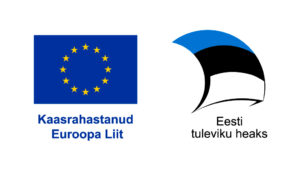Circular Architecture Accelerator
The Circular Architecture Accelerator (CAA) is a comprehensive two-year training program designed specifically for architectural firms. The program spans four semesters and focuses on imparting contemporary expertise in sustainable architecture and construction practices.
The broader objective of the project is to enhance the competitiveness of architects specializing in circular and environmentally sustainable design. This includes boosting their presence in international markets and fostering dialogue and knowledge exchange between architectural practice and academia regarding sustainable spatial design.
Who is this for?
RAK’s continuing education program primarily targets practicing architects. Additionally, the accelerator program incorporates essential topic blocks tailored for individuals from the public sector engaged in spatial planning, urban developers, as well as seminars designed for the public.
Why?
The RAK program aligns with environmentally sustainable principles within the architecture field, as outlined in Estonian and EU development plans and strategies such as Estonia 2035, Construction Roadmap 2040, Long-Term View on Construction 2035, Circular Economy White Paper and Green Turn Action Plan 2023-2035; as well as Europe’s New Bauhaus, the National Waste Plan 2022-2028, the study of the future potential of Estonia’s circular economy and necessary measures, LifeIP BuildEST, Nordic Harmonization of Life Cycle Assessment and FCRBE – Facilitating the circulation of reclaimed building elements in Northwestern Europe.
What does the program consist of?
The total CAA program consists of 4 semesters completed over 2 years, within which a total of 8 seminar days, 4 workshops/trainings, 2 public seminars, 4 study trips, and a hackathon summarising the program will take place.
During the study trips to Oslo, Brussels, Copenhagen, and Zurich, participants will visit companies specializing in design and construction that utilise circular and sustainable building materials, along with innovative technologies. Additionally, visits are made to public sector institutions and universities to explore their initiatives and projects related to sustainability in the built environment.
During the study tours of the first semester, the following companies will present their activities and projects: Snøhetta, MAD Architecten, Oslotore, FutureBuilt, Rotor DC ja BC Architects & Materials.
In the workshops, you’ll gain insights into assessing and minimising a building’s carbon footprint from Kadri-Ann Kertsmik from Taltech. Additionally, there will be hands-on material-focused sessions where we’ll introduce regenerative and innovative building materials and technologies.
The seminars aim to highlight pilot projects from both domestic and international contexts, alongside discussions on legislative developments and the latest advancements in sustainable construction and design. Expert trainers, hailing from Estonia and abroad, will lead these sessions, offering specialised insights in their respective fields.
The seminars of the first half of the year are conducted, among others, by: Simo Ilomets (Taltech), Eik Hermann (EKA), Yoko Alender (arhitekt, poliitik ja kirjastaja), Indrek Allmann (PLUSS arhitektid), Gabrielė Ubarevičiūtė (After Party), Marija Katrīna Dambe (Nomad Architects), Helena Rummo ja Elina Liiva (EKA), Jüri Rass ja Hannamary Seli (Kliimaministeerium), Katharina Blümke & Elena Boerman (Karlsruhe Institute of Technology), Karin Bachmann (Kino Maastikuarhitektid), Mari Möldre, Margus Tammik (ruumiloomeresidentuur VARES)
Through the topics discussed at public seminars, we can also inform other interested parties about the challenges of the field.
The first public seminar will take place in October 2024, where their visions will be presented by Juliane Greb (Büro Juliane Greb), Laurens Bekemans (BC Architects), Alvin Järving (Arhitekt Must) ja Chief architect of Brussels Kristiaan Borret.
To sign up or get more detailed information reach out to andrea.tamm@arhitektuurikeskus.ee
The training program is co-financed by the European Union for the period 2021-2027 from the funds of the implementation programs of the Cohesion and Internal Security Policy Fund.

